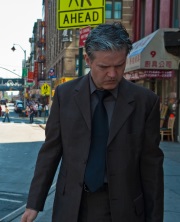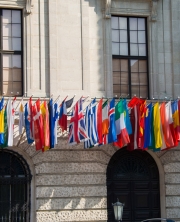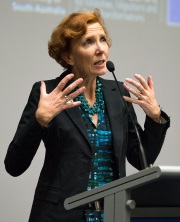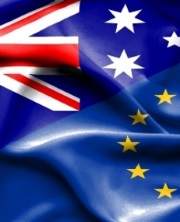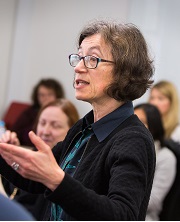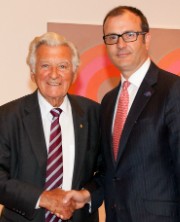2025
Public Lecture by H.E. Mr. Gabriele Visentin
POSTPONED
Location: Bradley Forum, Lvl 5, Hawke Building, University of South Australia, City West Campus, 55 North Terrace, Adelaide

Ambassador Visentin will spotlight the crucial contributions of individuals like Raffaella Iodice, whose tireless advocacy for Afghan women’s and girls’ rights exemplifies the profound impact of personal dedication to global change for good. This address promises to offer a deep dive into the EU’s ongoing efforts and the inspiring individuals who are shaping a more cooperative and compassionate world.
More Information
Public Lecture by H.E. Ms Beate Grzeski, Ambassador of Germany to Australia
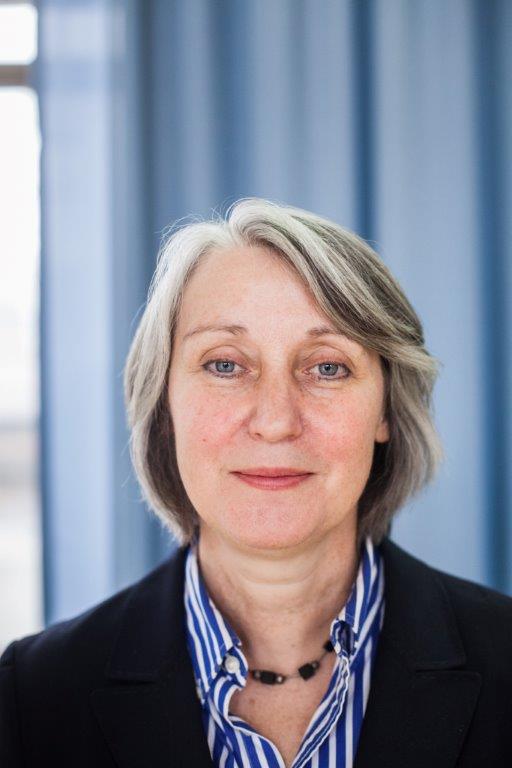
Ambassador Visentin will spotlight the crucial contributions of individuals like Raffaella Iodice, whose tireless advocacy for Afghan women’s and girls’ rights exemplifies the profound impact of personal dedication to global change for good. This address promises to offer a deep dive into the EU’s ongoing efforts and the inspiring individuals who are shaping a more cooperative and compassionate world.
Lecture audio and transcript available here
Public Lecture by H.E. Mr Paolo Crudele, the Italian Ambassador to Australia
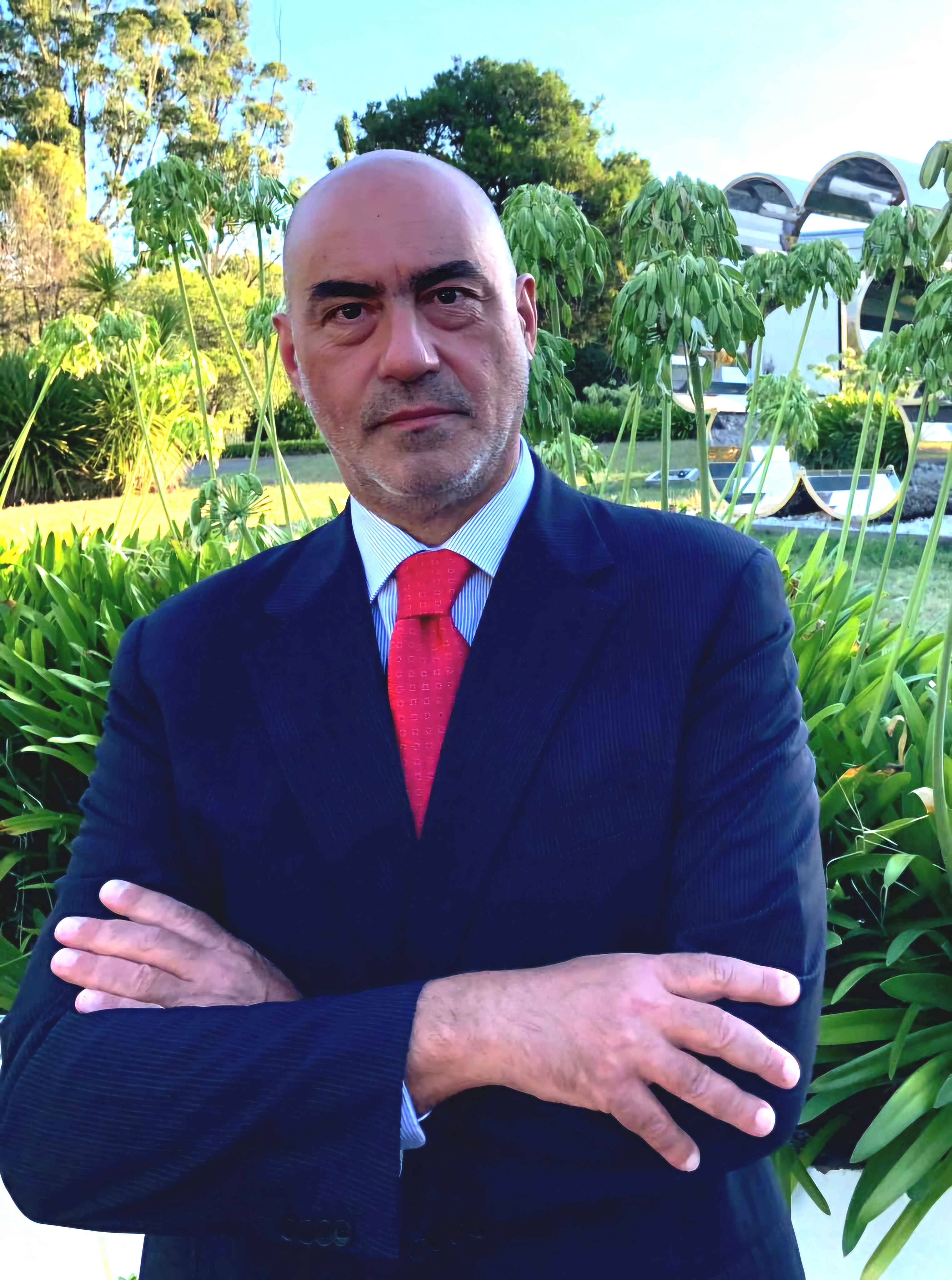
6-7pm, Friday 28 February
Bradley Forum, Level 5, Hawke Building, University of South Australia, City West Campus
Italy and Australia have a long history of cooperation. From the first waves at the beginning of the 20th century, to the massive afflux of Italian citizens following the Second World War, Italy has contributed to shape the identity of contemporary Australia in many sectors: food, arts & culture, sports, infrastructure, just to mention some of them. Our bilateral relations are however continuously evolving: students, researchers and scientists’ exchanges are increasing, 250 Italian companies invest and operate Down Under while Italian culture keeps generating high interest in the Australian public.
Italy and Australia found common grounds and interests also in the Indo-pacific region, where we cooperate to grant freedom of navigation and trade, respect of human rights. We stand together on common principles and shared values, in support of the international multilateral system as opposed to dangerous unilateralism. But is there an unexpressed potential between the two nations? Is there a communication gap that hinders a deeper reciprocal understanding?
More Information
2024
UniSA Jean Monnet Workshop: Law Social Theory and Digitization
2-5pm, Wednesday 18 September
Lewis O'Brien Building Boardroom (LB1-08), UniSA City West Campus
The UniSA Jean Monnet Centre's 'Law Social Theory and Digitization' Workshop will explore contemporary challenges posed by advanced digital technologies and some of the legal responses that have been developed. Discussions will focus on how digital technologies and their social impacts are theorised, and how this informs policy making.
Key presentations will be delivered by Professor Massimo Durante and Dr Jacopo Ciani from the University of Turin Italy.
Register by email to louis.everuss@unisa.edu.au
More Information
2023
Dr Louis Everuss Delivers Invited Presentations on Border Digitisation
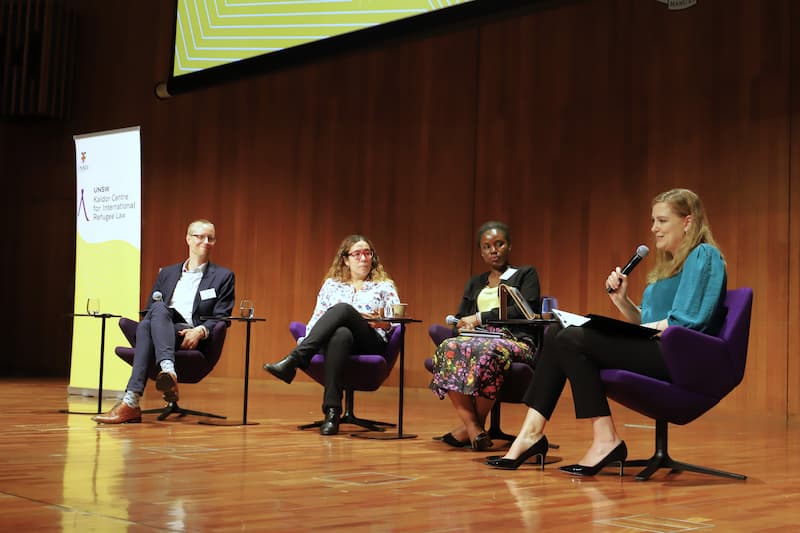
In 2023, the Coordinator of the Jean Monnet Centre of Excellence, Dr Louis Everuss, was invited to present in two separate research conferences/roundtables on his research being published in his forthcoming book titled Digital Mobilities and Smart Borders: How Digital Technologies Transform Migration and Sovereign Borders.
More Information
King’s Birthday Honours for JMCOE
Trailblazing UniSA sociologist Professor Anthony Elliott, Executive Director of the Jean Monnet Centre of Excellence, was appointed a Member of the Order of Australia (AM) in the 2023 King’s Birthday Honours List.
Prof Elliott, whose award recognises significant service to education and to social science policy and research, is a Fellow of the Academy of Social Sciences in the UK, Fellow of the Academy of Social Sciences in Australia, Fellow of the Cambridge Commonwealth Trust, and a Senior Member of King’s College, Cambridge. He currently serves as a member of the Australian Research Council’s College of Experts.
More Information
2022
Jean Monnet Centre of Excellence Funding Renewed by the EU through a new Erasmus+ Grant

In the 2022 round of the Erasmus+ Jean Monnet Grant Program the University of South Australia won a grant to continue with the activities of the Jean Monnet Centre of Excellence for a further three years. The new grant was recognition of the tremendous success of the previous Hawke EU Jean Monnet Centre of Excellence which achieved a wide range of research outputs, contributed to the interest in and teaching of EU content in South Australia, and engaged extensively with public audiences on important aspects of Australia's relationship with Europe.
More Information
Ireland and the EU: The First 50 Years
Date: Thursday 19 May 2022, 6:00 pm – 7:15 pm ACST
Location: Bradley Forum (H5-02), Hawke Building, City West Campus, UniSA AND MOD, North Tce, Adelaide
A personal look at the last five decades of Ireland’s EU Membership by the Ambassador of Ireland to Australia, H.E. Mr Tim Mawe.
H.E. Mr Tim Mawe currently holds the position of the Ambassador of Ireland to Australia. He has previously served as Regional Director for Asia Pacific in Ireland’s Department of Foreign Affairs, Ireland’s Deputy Permanent Representative to the United Nations in New York, as Ambassador to Latvia and as Head of Finance and Head of Planning for Ireland’s last EU Presidency.
More Information
Night of Ideas - Confluence(s): The Digital Revolution and Everyday life
Date: Thursday 25 August 2022, 6:00 pm – 8:00 pm ACST
Location: MOD, North Tce, Adelaide
Presented by the UniSA Jean Monnet Centre of Excellence, MOD at UNiSA, and the French Embassy in Australia
Confluences: Digital Revolution and Everyday Life’ is a public event focussing on the increasing presence of artificial intelligence (AI) and related digital technologies in everyday life.
The event is co-hosted by the Jean Monnet Centre of Excellence and MOD. at the University of South Australia, as well as the French Embassy to Australia and forms part of an international suite of activities supported by the French Government’s Night of Ideas initiative celebrating the free circulation of ideas and knowledge through conferences, forums and artistic performances. The Night of Ideas’ focus this year is on “(Re)building together”.
More Information
Sustainable Mobilities in Smart and Livable Cities – Mobility Inequality in the Mobile Risk Society
Masterclass with Professor Mimi Sheller and Professor Sven Kesselring
This session invites contributors working with sustainable mobilities in smart/livable cities related to
contemporary challenges of the mobile risk society and mobility (in)justice.
The advanced and rapid changes in the mobility landscape raise new ethical challenges about who has
access to the mobile city. Although new mobility technologies are linked with smoother and faster travel,
the freedom and capacity to move are far from equal for everyone differentiated by hierarchies of
gender, age, citizenship, etc. This can be viewed as a blind spot in the planning for sustainable mobility
in cities. A question arises from this about how to secure social justice when seeking transition to
sustainable urban mobilities.
More Information
2021
Social Science Since AI: Challenges and Controversies
Special lectures by Prof Helga Nowotny and Prof Anthony Elliott
This Special Dual Lecture event featuring Professor Helga Nowotny and Professor Anthony Elliott is co-hosted by the JST Doctoral Program Student Support Project “Nurturing of doctoral students who will map the grand designs for future society”, Graduate School of Human Relations, Keio University and the Jean Monnet Network on Cooperative, Connected and Automated Mobility: EU and Australasian Innovations (CCAMEU), University of South Australia.
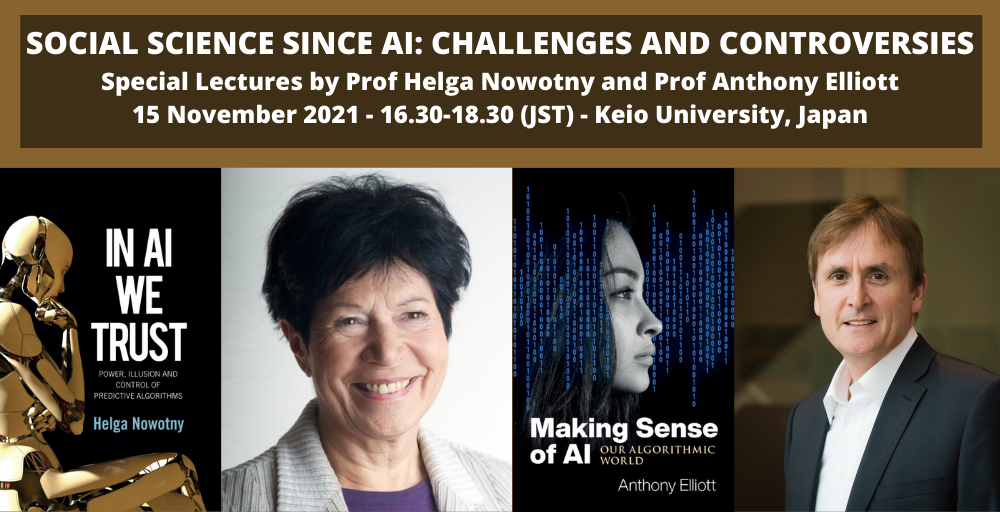
More Information
EU Thinker-in-Dialogue Presentation by Dan Hill
Date: Thursday 5 August 2021, 4:00 pm – 6:00 pm ACST
Location: Bradley Forum (H5-02), Hawke Building, City West Campus, UniSA
Presented by the UniSA Jean Monnet Centre of Excellence and UniSA Creative People, Products and Places (CP3) Research Centre
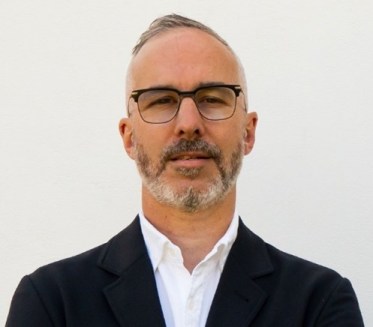 In this talk, Dan Hill draws from the thinking shared in his Slowdown Papers series, but also from his project work all over the world, as a designer at SITRA’s Helsinki Design Lab, at Arup in Australia, Europe, and the US, and most recently with Vinnova in Sweden, where he is forging design-led place-based missions to help reimagine streets, public space and food systems. Dan also drew from his significant experience in Australia, exploring how these ideas might connect to current and future cities and cultures. Dan ended by describing how Sweden, and the European Commission, is approaching the New European Bauhaus programme, a leading edge of the Green Deal oriented around sustainability, aesthetics and inclusion.
In this talk, Dan Hill draws from the thinking shared in his Slowdown Papers series, but also from his project work all over the world, as a designer at SITRA’s Helsinki Design Lab, at Arup in Australia, Europe, and the US, and most recently with Vinnova in Sweden, where he is forging design-led place-based missions to help reimagine streets, public space and food systems. Dan also drew from his significant experience in Australia, exploring how these ideas might connect to current and future cities and cultures. Dan ended by describing how Sweden, and the European Commission, is approaching the New European Bauhaus programme, a leading edge of the Green Deal oriented around sustainability, aesthetics and inclusion.
More Information
UniSA Jean Monnet Centre of Excellence Annual Lecture by Professor Helga Nowotny
In AI We Trust: Power, Illusion and Control of Predictive Algorithms
Presented by the UniSA Jean Monnet Centre of Excellence and UniSA Justice & Society in association with the University of Vienna
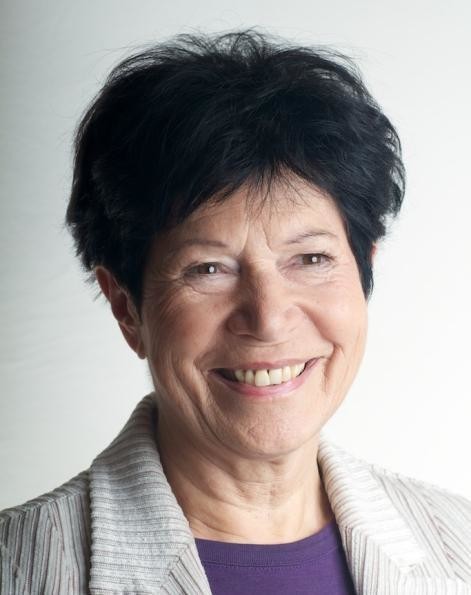
As we move into a world in which algorithms, robots and avatars play an ever increasing role, we need to better understand the nature of AI and its implications for human agency. In this lecture Professor Nowotny argues that at the heart of our trust in AI lies a paradox: we leverage AI to increase control over the future and uncertainty, while at the same time the performativity of AI, the power it has to make us act in the ways it predicts, reduces our agency over the future.
These developments alter our temporal bearings and the ways in which we experience the present and see the future. We create a mirror world, entering into multiple and dynamic interactions with the digital Others that inhabit it and inducing a rise of identity anxieties. We are now moving into an era where control over the digital machines created by us becomes limited as AI monitors our actions, posing the threat of surveillance, while also offering the opportunity to reappropriate control and transform it into care. The narrative of progress which dominated modernity is no longer sufficient as guidance. Instead - future needs wisdom.
More Information
EU Thinker-in-Dialogue Presentation by Dr Cornelia Dümcke
Date: Thursday 30 September 2021, 4:00 pm – 5:30 pm ACST
Location: MOD. Ground Floor, Bradley Building, North Terrace adj Morphett Street Adelaide, SA 5000
Presented by the UniSA Jean Monnet Centre of Excellence and UniSA Creative People, Products and Places (CP3) Research Centre
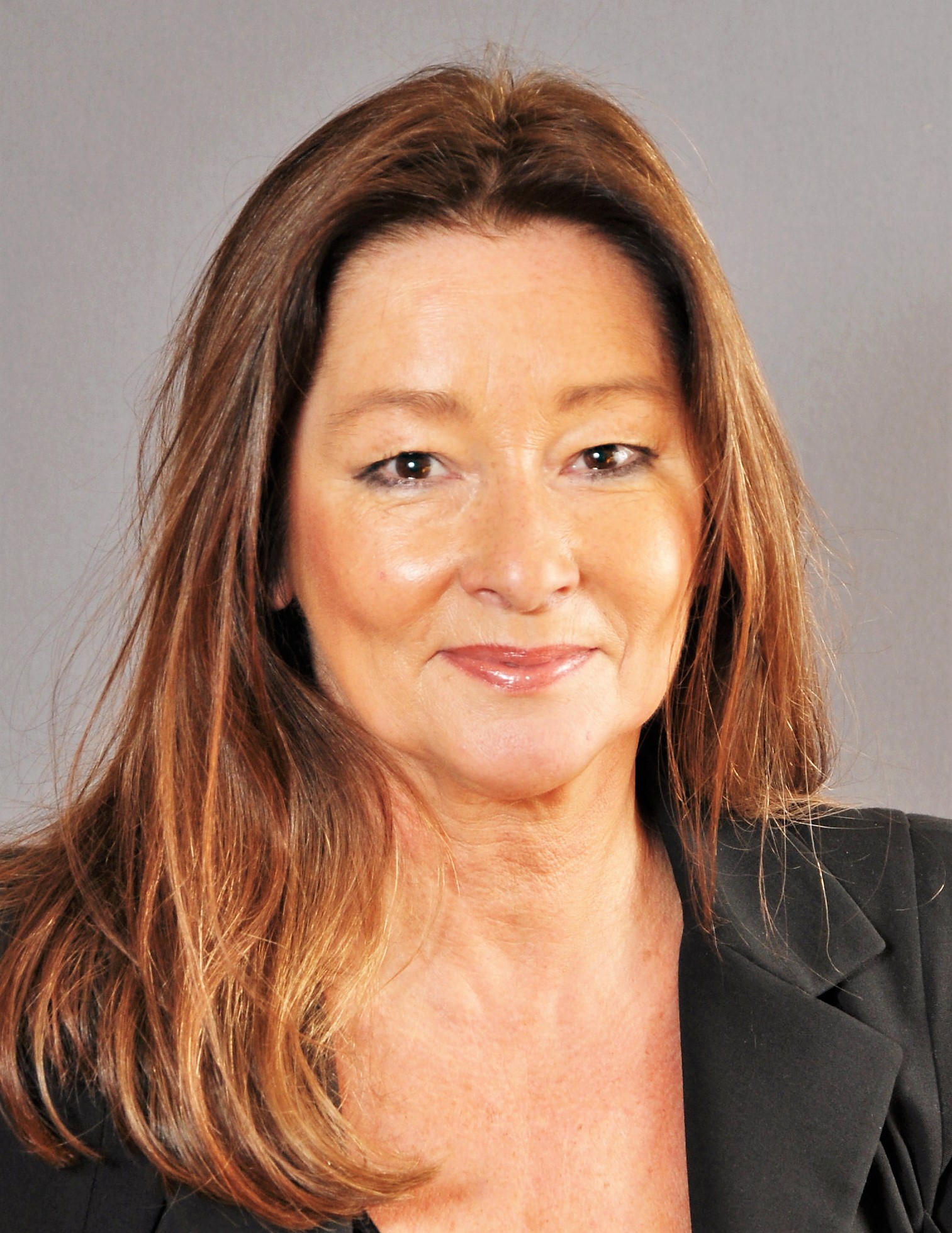
Please join us for the launch of the first paper in the Creative People, Products and Places Research Centre Working Papers series: Keeping Creative: Assessing the Impact of the COVID-19 Emergency on the Art and Cultural Sector & Responses to it by Governments, Cultural Agencies and the Sector, including a presentation by Working Paper project partner Dr Cornelia Dümcke, Culture Concepts, Germany.
The presentation has two parts: Firstly, it focuses on the impact of COVID-19 on the cultural and creative sectors (CCSs) in Germany from March to the end of July 2020. It reviews the responses by Germany (federal, state and city level), grouped into three phases. The country has made explicit reference to the importance of arts and culture in the crisis. Germany has a high level of arts and culture funding, but in the last years the cultural and creative scene has changed. The presentation will highlight these changes and will review state responses as well as new initiatives from the cultural sector itself - beyond the first months. Secondly, it looks briefly at the European responses to the Pandemic crisis at programme and policy level. Against this background, some tentative conclusions, with an eye on the near future of cultural policy making, are made.
More Information
Masterclass: Media, Democracy and Equality: A new public sphere from the European perspective
Masterclass delivered by Professor Marinella Belluati (University of Turin, Italy)
Date: Thursday 1 July 2021 - 4.00pm - 5.30pm (Australian Central Standard Time)
Virtual Workshop - Zoom link will be sent to registered participants

A high-quality news media system that can hold governments and social and political powerbrokers to account is essential for democracy and the promotion of equality. However, over recent decades news media has faced unprecedented challenges including the rise of digital media outlets and the increasing presence of misinformation in public discourse. Additionally, the public sphere in which the news media operates is being infiltrated by populist and nationalist discourse. In this Masterclass, Professor Marinella Belluati will examine this media landscape and the risks being posed for democracy and the promotion of equality in the European context.
Masterclass discussion will centre on two interrelated European projects. Firstly, a Jean Monnet module on 'Communicating Europe: Institution, Representations and Public Opinion' (CoEur) through which Professor Belluati studies the role of the media in making the EU integration process more democratic and participative. CoEur sheds light on the essential relations between Media, Democracy and Participation in the particular context of the EU’s multi-level governance and multi-actor structure. Secondly, the “Media for Democracy Monitor 2020” (MDM 2020) research project. MDM 2020 monitors media systems across 24 countries assessing how well they uphold freedom of expression, the extent to which diversity in media systems promote equality, and the extent to which media organizations act as watchdogs for social and political powerbrokers.
More Information
AI4EI International Engagement Workshop
Hosted by the CCAMEU Network and the University of Turin
Date: 24 July 2021
Virtual Workshop
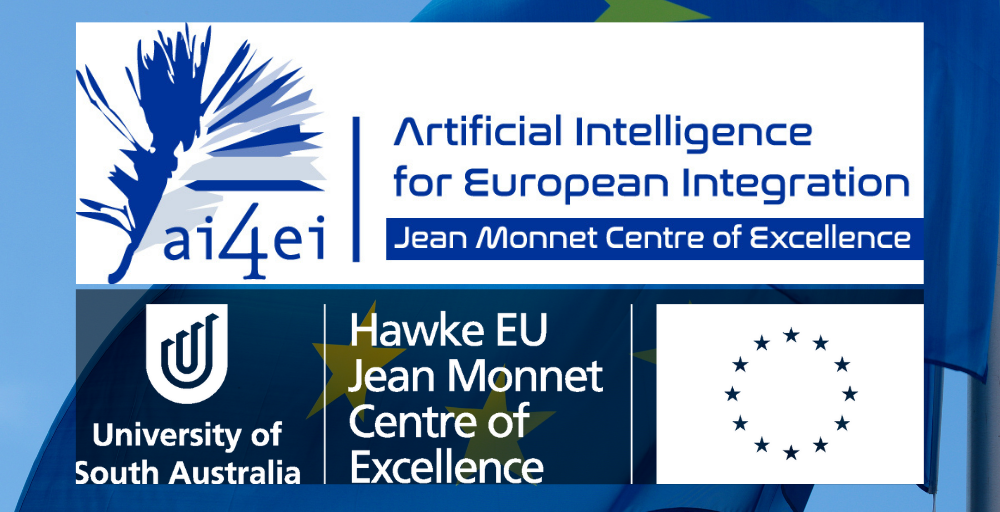
On the 24th of June an International Engagement Workshop was held to promote collaboration between the University of South Australia's Jean Monnet Centre of Excellence and the Artificial Intelligence for European Integration (AI4EI) Jean Monnet Centre of Excellence, based at the University of Turin, Italy.
The purpose of this workshop was to bring together researchers from the University of Turin’s AI4EI Jean Monnet Centre and the University of South Australia’s Jean Monnet Centre and Network. These Jean Monnet funded projects share an interest in the social and political outcomes of AI and processes of digitisation. As such the fertile ground for collaboration on current and future research activities between the centres was explored.
More Information
Masterclass: 'Transforming Mobility in Everyday Life'
Hosted by the CCAMEU Network and the University of Nürtingen-Geislingen
Date: 23 April 2021
Virtual Workshop - Zoom link will be sent to registered participants
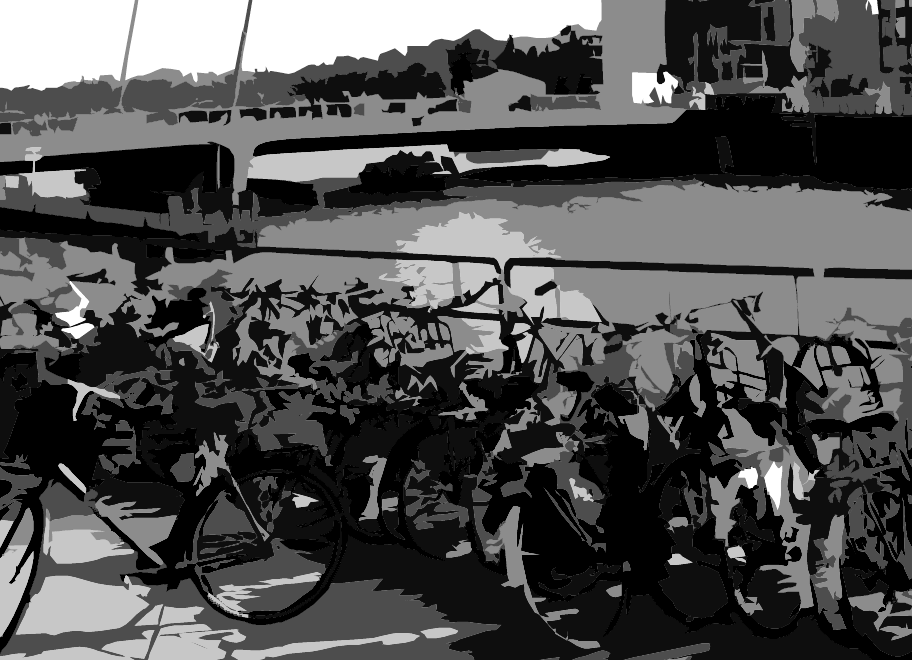
Automation is a fast moving phenomenon that has already entered the mobility arena. Artificial intelligence is creating a “technological tsunami” (Elliott 2018) that is transforming modern lives, communication, intimacy, production, design, and mobilities.
This masterclass, co-organized by Erasmus+ EU Research Network CCAMEU and HfWU, focusses on contemporary research and PhD work examining automation and mobilities. Through this masterclass the social implications and consequences of automation led mobility transformations will be placed centre stage. Keynote presentations will be given by Dr Weert Canzler (Berlin) and Dr Jack Stilgoe (London).
More Information
2020
‘After the Car: Artificial Intelligence and Automated Mobility Systems’ Workshop
Hosted by the CCAMEU Network and Justice & Society
Date: 5 November 2020; Time: 1pm - 5pm (Australian Central Standard Time)
Virtual Workshop - Zoom link will be sent to registered participants
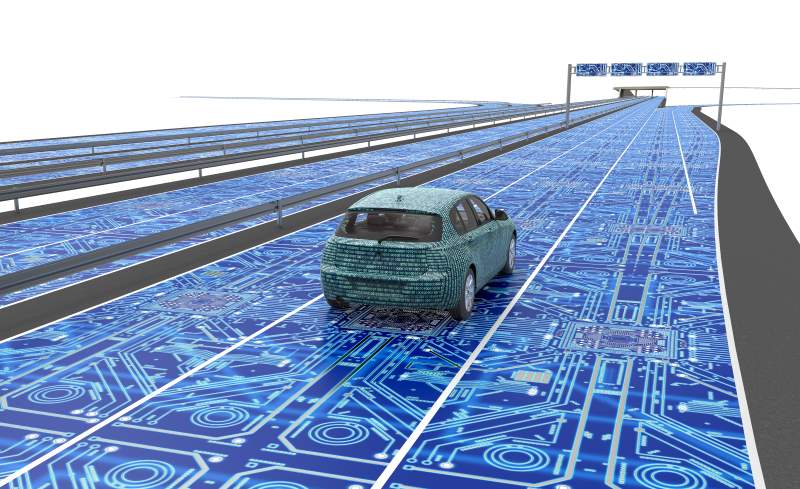
This Workshop, organized by the Erasmus+ Jean Monnet Network - Cooperative, Connected and Automated Mobility: EU and Australasian Innovations (CCAMEU) – at the University of South Australia, asks fundamental questions about experimentation in the reworlding of mobilities arising in the wake of artificial intelligence. Addressing shifts from the car-based dominant system of twentieth century mobilities to the emerging automated networks of mobilities in the twenty-first century, the Workshop considers the formidable technological, economic, social, organizational and global problems associated with the ‘engineering’ of a new system of automated mobilities. From issues of ‘carbon power’ to infrastructural funding, the central focus concerns the many problems and dilemmas relating to reworlding mobilities within the technological frameworks of AI, machine learning, big data, advanced robotics and accelerating automation.
More Information
Mobile Tartu Virtual Conference 2020
Hosted by the University of Tartu, Estonia, Europe
International Conference was held on 30th of June online
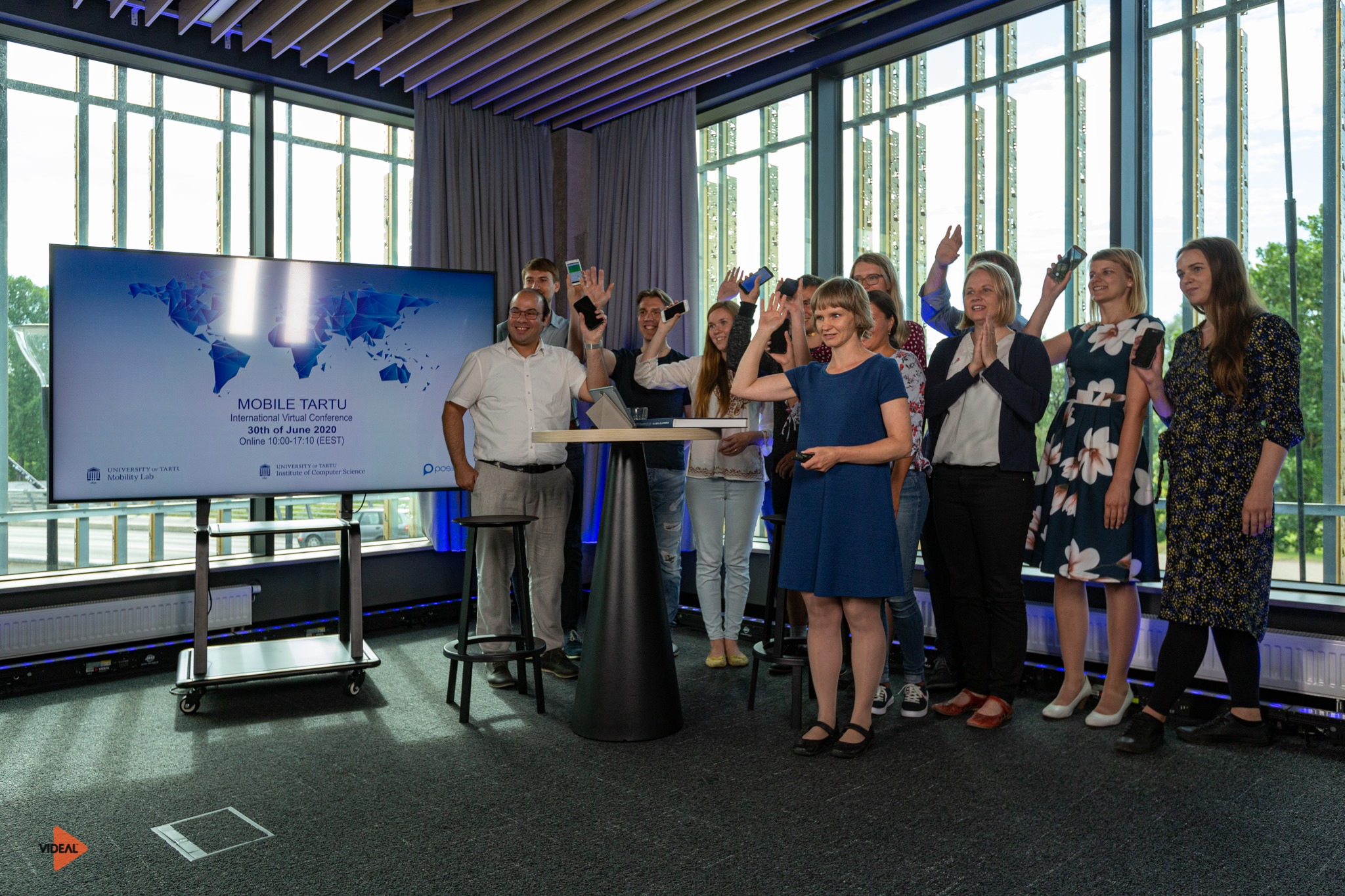
The 7th mobility research conference Mobile Tartu brought together over 300 professionals worldwide, this time virtually. Mobile Tartu is a biennial conference that focuses on the latest advancements in theoretical, methodological and empirical aspects of human mobility on the basis of mobile big data. The conference hosted a series of keynote talks from leading scholars in the field of mobility, location based services and big data – Prof. Georg Gartner (Vienna University of Technology), Prof. Haosheng Huang (Ghent University), Prof. Rob Kitchin (Maynooth University) and Prof. Esteban Moro (MIT/Carlos III University of Madrid).
This year, the conference hosted a special session on automated, connected and cooperative mobilities as part of the EU Jean Monnet Network project CCAMEU. The session gave insights to the digital transformation of mobilities in European context by addressing the governance and policy of self-driving vehicles, bike share system and biking infrastructure, mobility monitoring, mobility data collection, processing and visualisation, and environmental and health impacts of mobility behaviour based on digital data sets on both mobility and travel environment. The session was moderated by Dr. Age Poom, a member of the CCAMEU network from the University of Tartu/University of Helsinki.
More Information
Centre of Excellence 2020 Annual Lecture
Virtual Activity - Video released on youtube 29 June 2020
Europe and the Challenges of Uncertainty in the age of Pandemic and Digitalization - Annual Lecture
Delivered by Professor Robert Holton, Fellow Emeritus, Sociology, Trinity Colledge Dublin
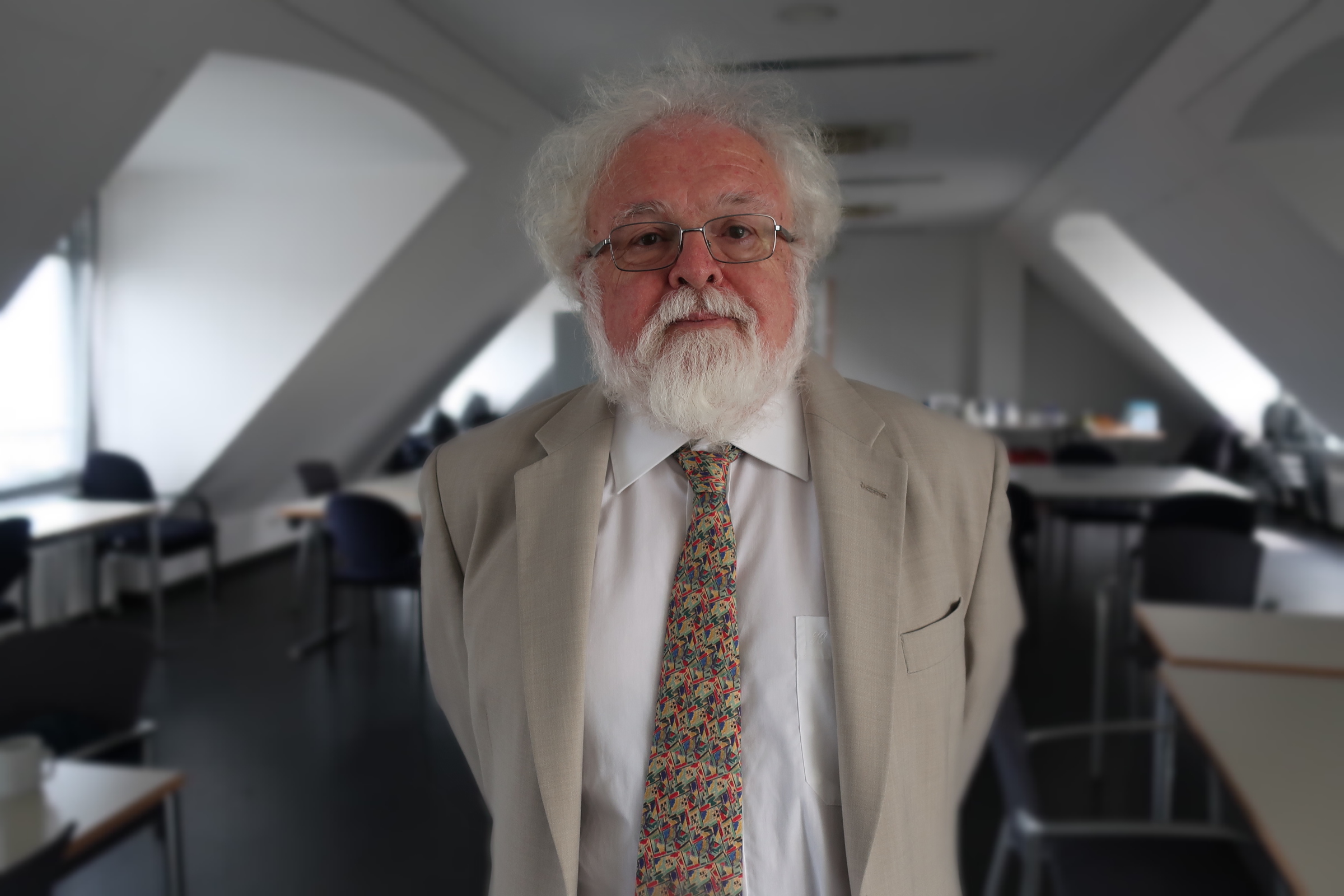
We live in a world of extreme uncertainty. In this lecture Professor Robert Holton investigates two major contemporary sources of uncertainty and the challenges they pose for Europe and the world in general. Professor Holton focuses first on the co-vid pandemic, and then on digitalization and artificial intelligence. The dynamics and consequences of these challenges create radical uncertainty for policy-makers and citizens alike. Professor Holton refers back to a famous quotation from Jean Monnet about the need for societies to experience and recognise crisis before change becomes possible. How comparable is our own situation today with the world that emerged from two World Wars, and created the momentum behind both the EU and multilateral global institutions?
More Information
2020 European Research Funding Information Session
Virtual Activity - Video released on youtube 29 June 2020
Presented by the UniSA Jean Monnet Centre of Excellence and the Office of the Deputy Vice Chancellor: Research and Enterprise
Delivered by Mr Nishant Shandilya, Country Representative of Australia and New Zealand for EURAXESS Worldwide

The European Research Funding Information Sessions are normally held on campus with experts travelling from the EU Delegation in Canberra. However, in the COVID-19 landscape of reduced travel and limited public gatherings, the 2020 European Research Funding Information Session is being held virtually with a pre-recorded keynote presentation by Mr Nishant Shandilya, Country Representative for Australia & New Zealand at EURAXESS Worldwide. In this presentation, Mr Shandilya focusses specifically on the European Research Council (ERC) Grants and Marie Skłodowska-Curie Actions (MSCA). Mr Shandilya outlines the policy rationale, structure and key thematic areas of these grant programs. The presentation sketches the specific requirements and steps for Australian applications to be correctly made under each scheme.
More Information
UniSA Jean Monnet Lecture by Professor Freudendal-Pedersen
Virtual Activity - Video released on youtube 1 June 2020
Presented by Professor Malene Freudendal-Pedersen from Aalborg University, Denmark (the CCAMEU Jean Monnet Network's Visiting Scholar)

This lecture suggests that sustainable mobility planning needs to move away from a predict and provide outset and instead move towards understanding mobility practices related to urban development, the mix of means of transportation, and the structuration of everyday life mobilities. Focus becomes how smart city development can contribute to more sustainable mobility practices, and in turn, create human cities. Hajer (2015) reminds us that what we need is smart urbanism rather than smart cities. In this lies an understanding of all the things cities are and not only which technologies we can put into them.
More Information
Global Masterclass by Distinguished World Thought Leader: Professor Malene Freudendal-Pedersen
Date: Thursday 11 June 2020
Time: 3:30 pm to 5:00 pm (Australian Central Standard Time)
Location: Zoom Virtual Event
Presented by Professor Malene Freudendal-Pedersen from Aalborg University, Denmark (the CCAMEU Jean Monnet Network's Visiting Scholar)
 The ‘new normality’ imposed by COVID-19 places urban mobilities in a different perspective and in this masterclass, we will investigate how this impacts the urban scale and how it might influence sustainable mobilities planning. Through empirical observations from urban practice, the culture of automobilities, and theoretical reflections we will discuss contemporary shifts and transformations in sustainable urban mobilities in the smart city, based on an understanding of all the things cities are and not only which technologies we can put into them.
The ‘new normality’ imposed by COVID-19 places urban mobilities in a different perspective and in this masterclass, we will investigate how this impacts the urban scale and how it might influence sustainable mobilities planning. Through empirical observations from urban practice, the culture of automobilities, and theoretical reflections we will discuss contemporary shifts and transformations in sustainable urban mobilities in the smart city, based on an understanding of all the things cities are and not only which technologies we can put into them.
More Information
Monnet Conversations - Episode 1: Business responses to COVID-19 in Europe
Virtual Activity - Video released on youtube 31 May 2020
Professor Anthony Elliott, Executive Director of the Jean Monnet Centre of Excellence and Network, University of South Australia
Mr Bo-Magnus Salenius, Co-Founder of Talentmiles, Finland
Mr Ralf Blomqvist, Partner of MainDialog, Sweden
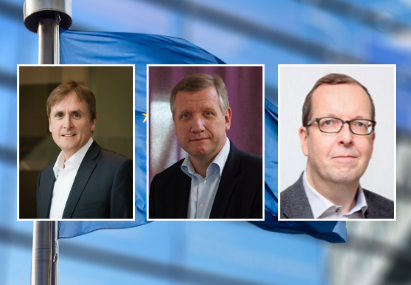
In the first episode of this new UniSA Series - Monnet Conversations - Professor Anthony Elliott (Executive Director of the Jean Monnet Centre of Excellence) talks to European consulting and business leaders, Mr Ralf Blomqvist (Main Dialog, Sweden) and Mr Bo-Magnus Salenius (TalentMiles, Finland), about the impacts of COVID-19 on European enterprise and culture. Their discussion focuses on organizational change in the aftermath of COVID-19 and looks at how European companies are responding to, and coping with, new challenges and burdens.
More Information
Public Lecture by Professor Massimo Durante - 'Computational power in 21st century Europe'
Date: Thursday 23 April 2020
Time: 6:00 pm to 7:30 pm
Location: Bradley Forum, Hawke Building, UniSA City West Campus, 55 North Terrace, Adelaide, SA 5000
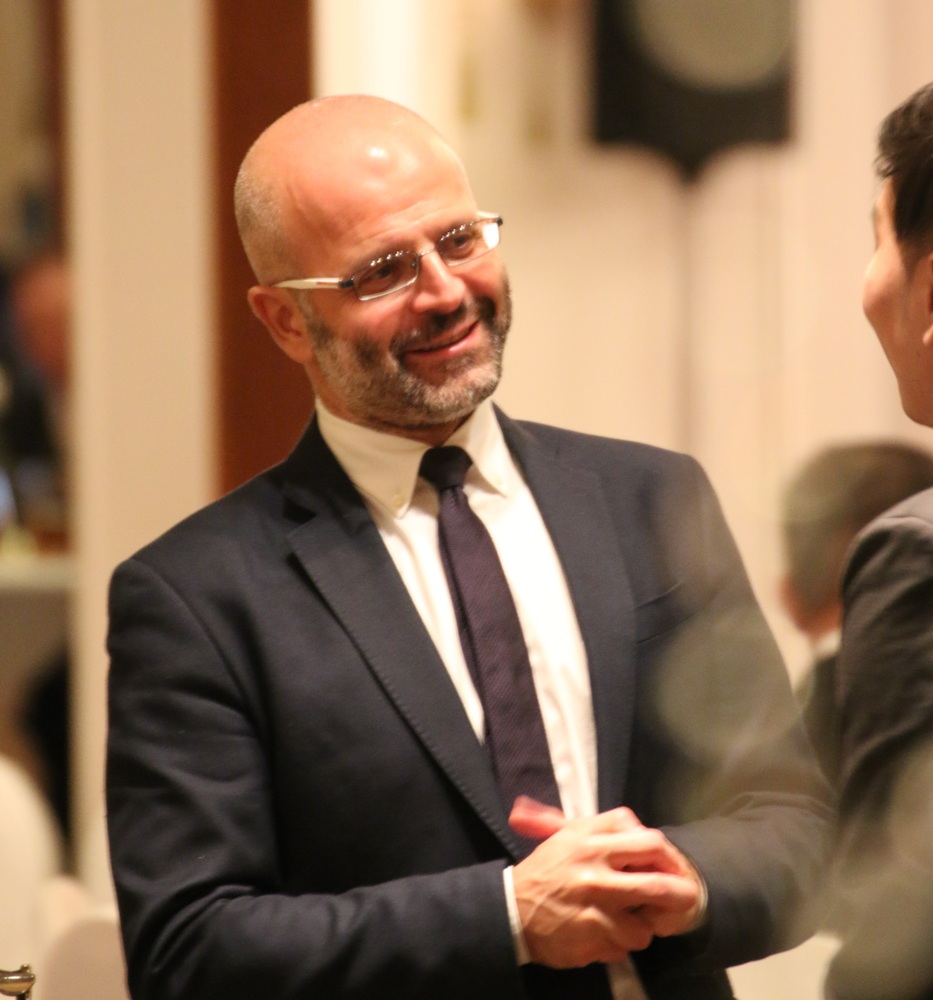
In a brilliant tour de force of the intricacies of computational power, Durante highlights in this Lecture that computational power intersects with different epistemologies where intelligent machines represent the world and act within it. In the digital world, power is not only linked to large IT societies and information silos; it is, says Durante, predominantly coupled with new forms of knowledge and agency based on computational power, which reshape progressively and quite indiscernibly our forms of life.
LECTURE POSPONED DUE TO COVID-19
More Information
Public Lecture by Professor Nick Gill - 'Fantasies of Refugee Law: Failing Asylum Seekers in Europe'
Date: Wednesday 18 March 2020
Time: 6:00 pm to 7:30 pm
Location: Bradley Forum, Hawke Building, UniSA City West Campus, 55 North Terrace, Adelaide, SA 5000
Presented by Professor Professor Nick Gill, University of Exeter (Hawke EU Jean Monnet Centre of Excellence 2020 Thinker in Residence)
What tu rns a principle into a fantasy? Although asylum policy and law generate unparalleled levels of political and social concern, astonishingly little is known about the day to day sites at which life and death decisions about refugees are made. This lecture examines the fate of lofty humanitarian legal principles at the point of their practical manifestation in space and time in the courts and hearing centres of Europe: effectively the last chance saloons before illegalisation and deportation.
rns a principle into a fantasy? Although asylum policy and law generate unparalleled levels of political and social concern, astonishingly little is known about the day to day sites at which life and death decisions about refugees are made. This lecture examines the fate of lofty humanitarian legal principles at the point of their practical manifestation in space and time in the courts and hearing centres of Europe: effectively the last chance saloons before illegalisation and deportation.
Drawing upon a multi-sited ethnographic study of hundreds of asylum appeals in seven European countries, the lecture reveals the everyday tyrannies and procedural dysfunctions inherent to these under-examined sites. Adopting a distinctively spatial, grounded view of the challenges of legal systematisation, the lecture contributes to both refugee law and critical perspectives in socio-legal studies and anthropology by laying bare the fragility of law in action.
More Information
Workshop-Stakeholder Roundtable - 'Precarious Refuge: addressing the challenges of temporary asylum'
Date: Friday 13 March 2020
Time: 10:00 am to 3:00 pm
Location: Bradley Forum, Hawke Building, UniSA City West Campus, 55 North Terrace, Adelaide, SA 5000
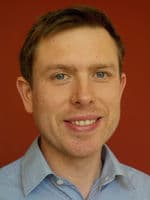
Includes presentation by Professor Professor Nick Gill, University of Exeter (Hawke EU Jean Monnet Centre of Excellence 2020 Thinker in Residence)
Join us for a workshop to explore the challenges and possibilities for people on temporary protection visas. The workshop will open with a keynote address from Professor Nick Gill (University of Exeter, UK see bio below) and will include panel discussions from researchers and service providers working with people on
temporary protection visas.
More Information
Masterclass by Professor Nick Gill: Welcome and Its Discontents: Borders, States and Practices of Hospitality
Date: Thursday 12 March 2020
Time: 3:00 pm to 5:00 pm
Location: B2-08, B Building, UniSA Magill Campus
Presented by Professor Professor Nick Gill, University of Exeter (Hawke EU Jean Monnet Centre of Excellence 2020 Thinker in Residence)
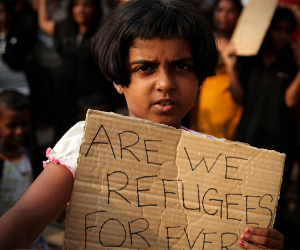
Responding to strangers and newcomers is a fundamental aspect of human nature and a topic of long-standing interest in the social sciences and humanities. And yet ‘welcome’ is a topic that has become both increasingly divisive, and also perversely banalised and trivialised. Recent scholarship in the sociology of hospitality has called for social scientists to complement grand theories and philosophies of welcome with a renewed attention to the everyday, ordinary activities of welcome and unwelcome (Lynch, 2017) and this lecture adopts and develops this lens to offer fresh perspectives on this important topic. Starting with the stuff of everyday life raises a series of questions about ‘welcome’.
Is welcome inherently emotional and relational? How can everyday welcome be understood with respect to statist and nationalistic logics and demands? Who welcomes, where and under what conditions? Who, or what, unwelcomes? And what role can research play in improving our understanding of welcome? In exploring these questions the topic of welcome leads us to connect with intractable debates about coloniality, intimacy, technology and non-human life.
More Information
2019
CCAMEU Copenhagen Workshop
Public Lecture and Workshop
6.00pm - 8.00pm, 4 December 2019
9.00am - 4.00pm, 5 December 2019
4 December 2019: Fæstningens Materialgaard, Frederiksholms Kanal 30, Entrance A6, 1220 Copenhagen
5 December 2019: Aalborg University CPH - A.C. Meyers Vænge 15, DK-2450 Copenhagen. Conference room 6.043.
As part of the EU Jean Monnet Network project CCAMEU (Cooperative, Connected and Automated Mobility – EU and Australian Innovations), Aalborg University is hosting a public event (panel debate) and a workshop, together with the two other network partners, University of Nürtingen-Geislingen and University of South Australia.
Public event: Planning the Smart and Liveable City
How do we understand liveability in an urban context and what does it mean when the vibrant and liveable city becomes SMART? These are some of the questions which will be debated when two of Denmark’s leading experts in city planning Professor Jan Gehl and former City Architect in Copenhagen Tina Saaby get together in an interesting panel discussion, moderated by Assistant Professor and Architect Jesper Pagh. The event takes place on 4th of December 2019 at Fæstningens Materialgaard, and is hosted by Aalborg University and BLOXHUB, as a part of the CCAMEU project.
Workshop: The smart and liveable city with cooperative, connected and automated mobility
The workshop will constitute a basis for discussions on pivotal fields of mobility with a focus on how the emergent cooperative, connected and automated mobility (CCAM) impacts upon urban planning, mobile routines of everyday life and our perception of the smart and liveable city. These discussions will be structured trough three central subjects of CCAM; smart technologies and robotics, automated mobility and everyday mobility in the livable city. The workshop takes place 5th of December 2019 at Aalborg University CPH.
Learn More
AI IS NOT WHAT YOU THINK: Everyday Life and the Digital Revolution
Public Lecture and Reception
Time: 6.00 - 8.30pm
Date: 11 September 2019
Location: Bradley Forum, UniSA City West Campus Adelaide, Australia
In this provocative lecture, Cambridge-trained sociologist Anthony Elliott argues that much of what passes for conventional wisdom about the AI Revolution is either ill-considered or plain wrong. The reason? AI is not so much about the future, but is rather a revolution already well underway – albeit one which is unfolding in complex and uneven ways across the globe. From industrial robots to chatbots, and from driverless cars to military drones – AI, Elliott argues, is transforming all aspects of our lives, from the most intimate aspects of personal relationships to the changing nature of work, employment and unemployment.
Learn More
D3REU Concluding Conference: 'AI and Digital Skills - The Australasian Context'
Date: 23-24 July 2019
Location: Adelaide, Australia

The EU co-funded ‘Digital Technologies, Transformations and Skills: Robotics and EU Perceptions’ (D3REU) Jean Monnet Project Grant has sought to promote EU/Australia research dialogue around the opportunities and challenges associated with the effects new robotic technologies are having on EU innovation and cohesion policy, especially with respect of the redefining of digital skills in the broadest sense (encompassing intellectual, physical and emotional skills), as well as on perceptions of the EU as an international policy leader. Across workshops in Munich, Warsaw and Helsinki, social scientists, industry and civil society representatives and practitioners have shared their research and analysis of robotics and digital skills along with relevant EU innovation and cohesion policy processes, as well as developed new lines of inquiry.
The findings and inquiries developed in these workshops are now being brought to Adelaide, Australia, in the concluding conference for D3REU. This international multidisciplinary Conference will further promote EU/Australasian research dialogue around the policy challenges associated with the effects new robotic technologies are having on redefining digital skills. This will promote interchange between key academics engaged in the study of the social consequences and design of robotics at the level of digital skills who are based respectively in either the EU or Australia and explore the relevance of European approaches for Australasia. It will also address how the EU as an international actor generally, and EU innovation and cohesion policy specifically, is viewed externally, and explore how to align international institutions with EU policy on and investment in robotics and AI.
Learn More
‘Challenges of EU Automated Mobility Systems: Integrating Theoretical Perspectives Workshop’: CCAMEU Launch Workshop
Date: 13 May 2019
Location: Munich, Germany

The ‘Challenges of EU Automated Mobility Systems: Integrating Theoretical Perspectives Workshop’ is hosted by the University of Nürtingen-Geislingen (HfWU), Germany. The workshop is part of the launch suite of activities for the Cooperative, Connected and Automated Mobilities Jean Monnet Network (CCAMEU), which is co-funded by a European Union ERASMUS+ Grant and the University of South Australia. Other Network Partners include Aalborg University, Denmark; University of Canterbury, New Zealand; Tartu University, Estonia and Keio University, Japan.
Learn More
"AI AND NEW DIGITAL SKILLS" WORKSHOP
Date: 9-10 May 2019
Location: Swedish School of Social Science, Snellmansgatan 12, Helsinki
This workshop is part of the Erasmus+ Jean Monnet Project - Digital Technologies, Transformations and Skills: Robotics and EU Perceptions (D3REU)

In this Workshop supported by the European Commission and facilitated by the Hawke EU Jean Monnet Centre of Excellence at the University of South Australia, we ask: what recalibrations need to be made to organizations and business today? In particular, what digital skills are demanded to best promote economic growth, as well as to ensure social cohesion?
More Information
"AI, DIGITAL SKILLS AND POLISH INDUSTRIAL TRANSFORMATION" WORKSHOP
Date: 7 May 2019
Location: Digital Knowledge Village, Pulawska 457, 02--844 Warszawa

This workshop is part of the Erasmus+ Jean Monnet Project - Digital Technologies, Transformations and Skills: Robotics and EU Perceptions (D3REU)
A grand societal challenge facing the EU and other parts of the world is how to respond to the current rise of the robotics revolution. What recalibrations are needed to our understanding of digital skills in order to both promote economic growth, as well as ensure social cohesion is maintained? The ‘AI, Digital Skills and Polish Industrial Transformation’ Workshop will identify the new digital skills required for employment and social participation, which are vital to realising the promises, and offsetting the risks, of robotics and AI.
More Information
European Union Research Funding Information Session
Date: Tuesday 9 April 2019
Time: 1.30pm to 3.00pm
Location: Room C1-60, Magill Campus, UniSA
Seminar by Jonas Rüpp, Adviser on Research, Innovation, Technology, Science and Education at the Delegation of the European Union to Australia
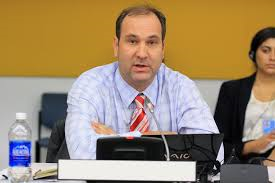
In this seminar European Union Adviser on Research, Innovation, Technology, Science and Education at the Delegation of the European Union to Australia, Mr Jonas Rüpp, will summarise the EU funding schemes that are available to researchers and educators at the University of South Australia.
The EU administers research and education funding programmes to support activities not just within Europe, but across the globe. Of particular note is the Horizon 2020 scheme, which is fully open to international participation in all fields and areas. In this seminar, Mr Rüpp will outline the policy rationale, structure and key thematic areas of the Horizon 2020 Programme. The presentation will sketch the specific requirements and steps for Australian applications to be correctly made under the scheme. Other EU funding programmes that Mr Rüpp will discuss include the Erasmus+ Jean Monnet programme, the Marie Skłodowska-Curie Actions and European Research Council Grants. Additionally, Mr Rüpp will look forward to future shifts in EU research funding, notably the next multi-annual financial framework package as it currently stands, Horizon Europe, identifying the opportunities that lay ahead for Australian based researchers and educators.
More Information
Europe - quo vadis: A German perspective
Public Lecture Presented by the Ambassador of the Federal Republic of Germany to Australia, Dr. Anna Prinz
Co-presented by the Hawke EU Jean Monnet Centre of Excellence and the Hawke Centre
Wednesday 27 March 2019, 6PM - 7.30PM
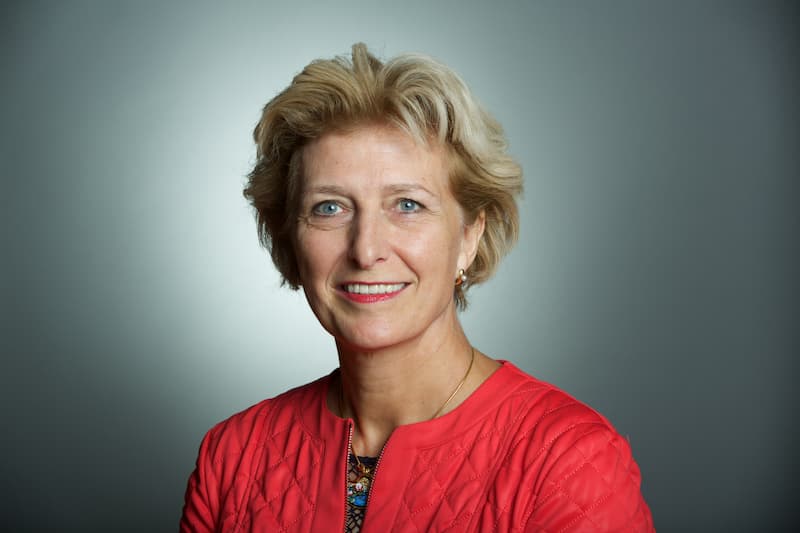
The European Union is one of the strongest political unions in the world, based on shared values. Today, there are over 500 million people living in the member states of the EU. Yet the EU is mired in crises – immigration, Brexit, the misfortunes of the Euro.
In this provocative lecture, Dr Anna Prinz contends that reform in Europe must go beyond narrow economic parameters and instead address the issue of a stronger but also more flexible Union. Ambassador Prinz looks at proposals to strengthen the EU, without weakening its neighbours, who are halfway integrated already in a complex system of interdependencies but do not want to proceed with integration at the same speed as others for various valid reasons.
HER EXCELLENCY DR ANNA PRINZ
She took up her posting as German Ambassador to Australia in Canberra in mid-2016, having previously served as German Ambassador to Slovenia and Deputy Ambassador to Japan. Throughout the three decades of her diplomatic career has held various postings in Europe, Asia and the Asia-Pacific Region - including in Jakarta and Colombo.
Anna was awarded a doctorate in politics at Göttingen University in Germany in 1984 and she holds a Master in Public Administration from the University of Harvard (Kennedy School, 1986).
During her time at the German Foreign Office headquarters, Anna held various positions such as Deputy Head of the task force on EU enlargement, Media Commissioner and Ambassador for Science Policy.
In her current function as German Ambassador to Australia she places strong focus on strengthening ties in the fields of innovation, Industry 4.0, Startups and science cooperation.
Register Here
Questioning the pursuit of successful careers and home ownership: A joint seminar featuring sociological perspectives from Finland and Japan
Presented by the School of Creative Industries and the Hawke EU Jean Monnet Centre of Excellence
Friday 1 March 2019, 3PM - 4.30PM
Room B2-08, B Building, UniSA Magill Campus
The School of Creative Industries and the Hawke EU Jean Monnet Centre of Excellence present this joint seminar featuring two presentations, which collectively call into question two key aspects of contemporary modern life: successful careers and middle-class home ownership. Dr Ingrid Biese (University of Helsinki) and Dr Rina Yamamoto (University of Tokyo) will be joined by Dr Eric Hsu (School of Creative Industries, UniSA) as chair. The seminar is free and open to all members of the UniSA community and to the general public. Light refreshments will be served.
New meanings of work: Opting out of mainstream career models to adopt alternative solutions for work
Dr Ingrid Biese
Ever since New York Times columnist Lisa Belkin coined the term ‘opt-out revolution’ in 2003, women opting out of high-powered careers has been a highly debated topic. However, as the debate has focused solely on women who leave to become stay-at-home mothers, it has missed a contemporary and societal aspect. On the one hand individuals today are finding it increasingly difficult to create coherent narratives of the self, and on the other, mainstream career models no longer necessarily correlate with how contemporary individuals live and work. I have thus introduced a broader definition of opting out to include opting in to alternative lifestyles and solutions for work, where individuals can better combine work with other areas of life. Using a free association-narrative approach, I have interviewed 45 women and men in Finland, the UK and the US. Opting out and in provided them with more flexibility and control as well as a sense of authenticity and coherence, which had a positive effect on their wellbeing.
Understanding what it is that pushes individuals to opt out, the effect this has on them and what it is they are looking for in their new lifestyles will provide organizations with the knowledge needed to create more sustainable career models that better suit contemporary realities in order to not only attract but also retain talented individuals going into the future.
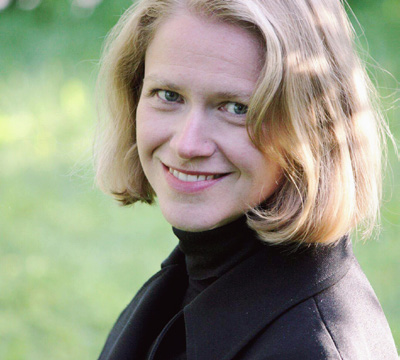
Ingrid Biese is an Academy of Finland postdoctoral researcher at the Swedish School of Social Science at the University of Helsinki, with a PhD from the University of South Australia. For her PhD she studied women who opt out of successful careers to adopt new lifestyles, and is now researching men who do the same. Areas of interest include globalization, individualization, sustainable work, identity, and gender. Ingrid regularly engages in public debates on issues pertaining to sustainable career models and new solutions for work, for example through her blog theoptingoutblog.com
The “my home” myth in Japan
Dr Rina Yamamoto
It is commonly believed in Japan that the “my home” myth (the phrase “my home” refers to owning a home of one’s own and/or pursuing a family- oriented way of life) is widely accepted among the Japanese middle class. However, this perception is now less accurate than it was half a century ago. To determine whether the “my home” myth still remains influential in the Japanese society, this study examines how homeowners have been transformed in contemporary Japan. During the 1960s and 1970s, the most common image of residents was that of a nuclear family, with a full-time
housewife and a white-collar husband, together with their two or three children, living in a nice suburb. However, this image gradually changed over the course of the 1990s and onwards. The resulting new image is not related to any particular person or a small group, like a family, instead, it is an image of an anonymized body which is sensitive to various components of housing and the texture of materials. These findings suggest that it is difficult to sustain the “my home” myth in contemporary Japanese society, given the demographic changes in Japan. Ingrid Biese is an Academy of Finland postdoctoral researcher at the Swedish School of Social Science at the University of Helsinki, with a
PhD from the University of South Australia. For her PhD she studied women who opt out of successful careers to adopt new lifestyles, and is now researching men who do the same. Areas of interest include globalization, individualization, sustainable work, identity, and gender. Ingrid regularly engages in public debates on issues pertaining to sustainable career models and new solutions for work, for example through her blog theoptingoutblog.com
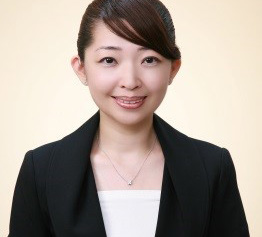
Rina Yamamoto is an Assistant Professor at the Graduate School of Arts and Sciences, the University of Tokyo, and is also a lecturer at Meiji and Rikkyo University. She specializes in Contemporary Social Theory and the sociological study of housing. She earned her Ph.D. from the University of Tokyo and was formerly a Research Fellow at the Japan Society for the Promotion of Science (PD). In 2015, she received an award from the Association of Urban Housing Sciences for her first book, The Myth of Homeownership in Japan. Her main papers include: "A Comparative Sociological Study on the Images of Urban Residences and the Role of Housing Advertisements," Journal of Housing Research Foundation Issue 40(2014), "Housing Commodification and its Transformation in Urban Japan: From the Order of "Home" to "Bodily Senses" Japanese sociological review Vol.62 Issue 2(2011), and more.
RSVP: CILResearch@unisa.edu.au
Developing Closer Ties: EU Member State Perspectives on EU-Australia Relations
Presented by The EU Ambassadorial Corps, led by His Excellency, Dr Michael Pulch, European Union Ambassador
Thursday 28 February 2019, 6PM - 7.30PM
The European Union consists of Member States who have strong interest in promoting relations with Australia on topics as diverse as trade negotiations, culture and economic opportunities. For the first time in Australia, the Hawke EU Jean Monnet Centre of Excellence and the EU will bring European Ambassadors and High Commissioners together at a public event to discuss, dissect and debate the EU’s relationship with Australia.
Join us for this public lecture and discussion with the Ambassadorial Delegation, including His Excellency Dr Michael Pulch, EU Ambassador to Australia. Heads of Missions representing a diverse range of European Union countries will contribute to the discussion - speakers to be announced soon.
HIS EXCELLENCY DR MICHAEL PULCH
His Excellency Dr Pulch was appointed to the role of European Union Ambassador to Australia in September 2017. Prior to his arrival in Australia Dr Pulch served as EU Ambassador in Singapore.
Learn more here
2018
Towards a new relationship with Europe: Why 2018 could become a game-changer year for Australia
Public Lecture Presented by His Excellency, Dr Michael Pulch, European Union Ambassador
Wednesday 26 September 2018, 6PM - 7.15PM
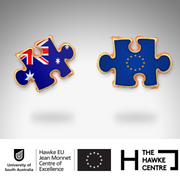
With the launch of Free Trade negotiations in Canberra on 18 June the EU and Australia are about to open a new chapter in their relationship. A looming Brexit next year will have significant consequences for Australia's interaction with continental Europe. Time to revisit a partnership that for a long-time had been marred by differences over agricultural policy, market access and climate change. In recent years however both sides have come closer in their outlook on key global challenges. A Framework Agreement signed in August last year compliments the push to liberalise bilateral trade and commits both sides to intensify cooperation in a whole range of areas covering foreign and security policy, science and technology, climate change and energy, education and culture.
What are the prospects for a reinvigorated partnership with the European Union and what would be the advantages for Australia in this undertaking?
New Perspectives on the Digital Revolution: Media, Identity and the Body
This workshop will bring together social researchers from Japan and Australia to exchange ideas and approaches about how we can better understand technological, mediated, and embodied transformations in the contemporary era.
The workshop will take place at the University of South Australia’s City West campus in Adelaide, Australia on the 8thof August 2018.
The Workshop was co-organized by the University of Tokyo’s Department of Sociology, the Hawke EU Centre and the School of Creative Industries at the University of South Australia. The Workshop co-conveners are Professor Kenji Sato (Tokyo), Associate Professor Takeshi Deguchi (Tokyo), Professor Anthony Elliott (UniSA), and Dr Eric L. Hsu (UniSA).
Workshop on 'Robotics and New Digital Skills: European and Australasian Dialogues'
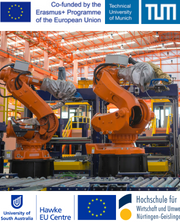
On the 2nd and 3rd of May 2018, the Hawke EU Centre worked with a number of international partners to convene a Multidisciplinary Interactive Workshop under the EU Jean Monnet Erasmus+ Project “Digital Technologies, Transformations and Skills: Robotics and EU Perceptions” (D3REU) held in Munich. The D3REU grant is led by Professor Anthony Elliott and is administered by the Hawke EU Centre.
The ‘Robotics and New Digital Skills’ Munich workshop was managed by the Technical University of Munich, Roskilde University in Denmark and Nürtingen-Geislingen University in Germany. The workshop focussed on the question of how to respond to the current rise of the robotics revolution and what recalibrations are needed to our understanding of digital skills in order to both promote economic growth, as well as ensure social cohesion is maintained.
French Day @ UniSA
Experience French culture at UniSA
Monday 15 May 2018
Mawson Lakes Campus 10.30am – 12.00pm, MM Building Foyer & MM1-05 Lecture Theatre
Magill Campus 12.30pm – 3.30pm, Building A - Café & Outdoor Space
City West Campus 4.00pm – 7.30pm, outside Student Lounge
The France-Australia Strategic Partnership in a Challenging International Environment
His Excellency Mr Christophe Penot, Ambassador of France to Australia
Thursday 17 May 2018, 6.00pm
Allan Scott Auditorium, City West Campus
2017
Networked Spaces, Digital Tools And The Future Of Creative Production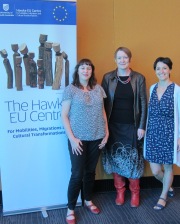
The Networked Lives, Digital Cultures and the Future of Creative Production: Comparing EU-Australian Perspectives Conference explored the current state of play in cutting-edge research into the cultural and creative industries, as well as the key challenges and opportunities facing culture and creative production in both the EU and Australia.
The event featured keynote addresses on current European thinking on the creative industries and economies by Dr Kylie Jarrett of Maynooth University, Ireland, and Associate Professor Ivana Pais of Università Cattolica del Sacro Cuore in Milan, Italy.
Friday 27 October 2017
Murray House, UniSA Magill Campus
Seminar by Associate Professor Ivana Pais
A Crowd of Digital Profiles: Privacy, social capital and reputation in the platform economy.
Thursday 26 October 2017
Bradley Forum, UniSA City West Campus
Seminar by Dr Kylie Jarrett
Geek Masculinity, Unprotected Settings and Cognitive Capitalism: The Political Economy of Online Harassment.
Tuesday 24 October 2017
UniSA Magill Campus
Hawke EU Centre Annual Lecture: Does the European Union Have a Future? Professor Loukas Tsoukalis 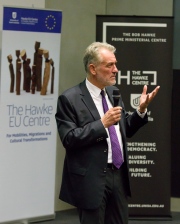
The Hawke EU Centre, in partnership with the Bob Hawke Prime Ministerial Centre, hosted it's Annual Lecture for over 250 people on 19 October with prominent expert on the European Union, Professor Loukas Tsoukalis of University of Athens. Professor Tsoukalis addressed current crises facing the European Union and potential direction for Europe to save the project.
Thursday 19 October 2017
Allan Scott Auditorium, City West Campus
The Future of the EU Summit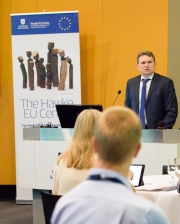
The Hawke EU Centre hosted The Future of the EU Summit on Wednesday 18 October 2017. The Summit hosted 40 people including Keynote Speaker Professor Loukas Tsoukalis of University of Athens, His Excellency Dr Michael Pulch - EU Ambassador, Her Excellency Mrs Nineta Barbulescu - Romanian Ambassador and other diplomats, state and federal government employees and leading academics from UniSA and other Universities. Discussion was held on the Future of the EU, engaging the pressing issue of the prospects for multilateral cosmopolitanism, global justice and alternative political futures in the EU, and with specific reference to the future of EU-Australia relations.
Wednesday 18 October 2017
Bradley Forum, City West Campus
Rural and Regional Mobilities Workshop:
Exploring the impact of (im)mobilities in rural and regional communities
Tuesday 26 September 2017
University of South Australia, Mount Gambier Campus
Hawke EU Centre Public Lecture - Mr Paul Power
UniSA hosted Mr Paul Power, CEO of the Refugee Council of Australia on 7 September 2017, for his lecture titled "Rebuilding our Damaged Reputation".
The lectured focused on:
- The concerns being expressed internationally about Australian refugee policy.
- How Australia might begin to restore its damaged reputation and show constructive leadership in international responses to refugee needs.
- The role civil society organisations and concerned citizens in Australia could play in bringing about change.
Read More and Download the Podcast.
European Social Theory Intensive - Mobility, Identity and Globalization
Hosted on 30 - 31 August 2017, The Hawke EU Centre for Mobilities, Migrations and Cultural Transformations at the University of South Australia consisted of a two-day intensive series of masterclasses on European Social Theory, entitled Mobility, Identity and Globalization.
The social theory intensive delved deep into mobilities, identity and globalization for enacting social change, taught by world leading social theorists Professor Sven Kesselring, Professor Malene Freudendal-Pedersen, Professor Robert Holton and Professor Anthony Elliott.
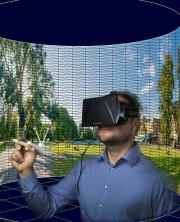 Innovation in EU And Australian Mobilities Workshop
Innovation in EU And Australian Mobilities Workshop
The Innovation in European and Australian Mobilities Workshop was held 28 - 29 August 2017, to build upon the success of past events held by Hawke EU Centre that seek to develop and deepen the mobilities paradigm in the analysis and critique of both freely-chosen and enforced mobility.
Throughout the workshop, national and international experts debated, discussed and shared ideas on current global developments in European and Australasian mobilities.
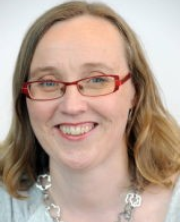 Translating Worlds: Migration, Memory, Culture
Translating Worlds: Migration, Memory, Culture
Held 17 - 18 August 2017 at Monash University, Melbourne VIC, this international and interdisciplinary symposium explored the relations between migration, memory and translation. Bringing together humanities researchers from fields including memory studies, modern languages and literary, cultural and media studies and ranging across Europe, Australia and beyond it discussed themes including:
- How cultural memories are translated in new cultural worlds;
- Blocks and facilitators of translation – the cultural practices and processes that aid and disable translation;
- Migration, affect, memory and translation;
- Mediation and re-mediation – media and remembering in new worlds;
- Migration, translation and the transcultural
International speaker Alison Ribeiro de Menezes (Professor, Hispanic Studies, Warwick University) presented a keynote paper.
This symposium was co-hosted by the University of South Australia’s Hawke EU Centre for Mobilities, Migrations and Cultural Transformations and the Monash-Warwick Migration, Identity and Translation Network.
 Economic Growth and the European Union: What prospects, which possibilities and what kind of leadership
Economic Growth and the European Union: What prospects, which possibilities and what kind of leadership
On Monday 31 July, the Hawke EU Centre in partnership with UniSA's Business School hosted this lecture by Professor Markku Sotarauta from the University of Tampere, Finland.
In this lecture, Professor Sotarauta asked how green growth can be promoted and what kind of leadership is needed to achieve this goal? In addressing this question, the importance of institutional innovation, new industry formation, industrial renewal and related leadership were discussed in light of observations from Europe.
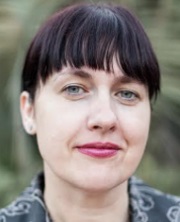 Discovering Romania in 12 Steps
Discovering Romania in 12 Steps
To continue with the Hawke EU Centre Ambassador Lecture Series, H.E. Ambassador Nineta Barbulescu delivered the fourth lecture on Tuesday 4 July 2017.
In this lecture, the audience was taken on a journey from the origins of the Roman Empire, World War I & II, the 1918 Great Union, and how the nation has been formed, through to Romania today – macroeconomics data, Internet, creativity, and innovation etc.
The Ambassador also covered the relationship between Romania and Australia in a global context and considered its many possibilities and challenges.
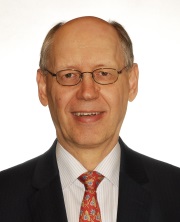 The World We Are Living in: A Global Perspective
The World We Are Living in: A Global Perspective
The third lecture of the Hawke EU Centre Ambassador Lecture Series was delivered by H.E. Mr Lars Backström on Wednesday 28 June 2017.
In this lecture, the Ambassador addressed many issues including global warming, environmental degradation, conflicts, poverty, famine, refugees, radicalization, terrorism, political polarization from a personal perspective.
The audience was invited on a journey from his native Finland via the European Union to the Middle-East, Africa, America, Asia and Australia.
European Climate Diplomacy Week - Screening of "The Age of Consequences" and Panel Debate
In recognition of European Climate Week, events are planned across the globe, including Adelaide where guests were invited the film screening and a moderated panel debate after the screening at Palace Cinema on Tuesday 20 June 2017.
The film screening was opened by H.E. Tom Nørring, Ambassador of Denmark to Australia and the Hon Ian Hunter MLC, Minister for Climate Change, Sustainability, Environment & Conservation, Water and the River Murray. The evening was chaired by Professor Anthony Elliott, Executive Director of the Hawke EU Centre for Mobilities, Migrations and Cultural Transformations.
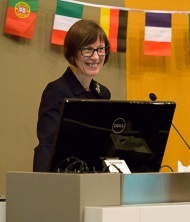 Europe Day Public Lecture: Slovenia in Europe Now – Is There an Alternative?
Europe Day Public Lecture: Slovenia in Europe Now – Is There an Alternative?
To celebrate Europe Day (9 May 2017) the Hawke EU Centre for Mobilities, Migrations and Cultural Transformations presented Slovenia in Europe Now – Is there an Alternative?, a public lecture by H.E. Ms Helena Drnovšek Zorko, Slovenian Ambassador to Australia at City West Campus on Monday 8 May 2017.
In this lecture, the Ambassador explored Slovenia’s place within the European community, and the many challenges the country has faced since gaining independence 26 years ago.
France and Australia: Together in a Time of Challenges and Uncertainties
The inaugural lecture of the Hawke EU Centre Ambassador Lecture Series was delivered by H.E. Mr Christophe Lecourtier, French Ambassador to Australia at City West Campus on Wednesday 18 May 2017.
In this lecture, Ambassador Lecourtier explored some of the many challenges facing modern-day Australia and France and illustrated how both countries can stand together to confront them, and also how together they can seize opportunities of the 21st century.
Mobile Cultures of Disaster Conference
A two-day conference presented by the Hawke EU Centre for Mobilities, Migrations and Cultural Transformations and the Japan Foundation Sydney at City West Campus on 23 - 24 March 2017.
The aim of the conference was to bring together prominent academics, specialists and policy analysts across the world to investigate the cultural and mobile aspects of disasters. The conference principally sought to stimulate research on how disasters are mobile and cultural phenomena. It asked participants to consider how disasters circulate around various parts of the world.
Identity vs Noise: 1Dn
A sound installation by Lloyd Cole at Nexus Arts, Lion Arts Centre from 25 January to 3 February 2017.
Created by the celebrated musician Lloyd Cole, Identity vs Noise: 1Dn explored the interplay of identity and difference. The presentation was a generative electronic composition of indefinite length, played by a unique modular synthesizer assembled by Cole specifically for the installation, with contemporaneous broadcast to interactive interfaces in Helsinki, Dublin and Tokyo.
2016
Global funding opportunities for resarch and policy dialogue on Europe via the Jean Monnet actions
A lecture by Dr Pietro De Matteis of the European Commission at UniSA's City West campus on Thursday 24 November 2016.
The information session addressed some of the funding opportunities for researchers at UniSA under the EU’s Jean Monnet funding scheme. The Jean Monnet Activities under the Erasmus+ Programme aim at stimulating teaching and research in European Union studies and foster dialogue between academics and decision-makers in the EU and around the world. This is done by funding Centres of Excellence within a University, Networks of Universities, Academic Modules, Professorships as well as Project and Associations.
 Offering Hospitality when the Stranger is at the Gate
Offering Hospitality when the Stranger is at the Gate
A lecture by Hawke EU Centre Thinker in Residence, Professor Alison Phipps at Adelaide West Uniting Church on Saturday 12 November 2016.
This talk by Professor Alison Phipps reflected on the role played by faith communities in the welcome of refugees to Europe, and especially to Scotland over the past 10 years.
Using poetry, liturgy and story the talk took the form of a journey out into the public square and back into the recesses of the spirit.
 Witnessing what happens when lessons are not learned: Calais, Lesbos, and Families held apart
Witnessing what happens when lessons are not learned: Calais, Lesbos, and Families held apart
Watch lecture HERE.
A lecture by Hawke EU Centre Thinker in Residence, Professor Alison Phipps at UniSA's City West Campus on Thursday 10 November 2016.
Bearing witness is uncomfortable and provoking. It changes those who are witnesses, often profoundly, as others who have made such visits will testify.
In this lecture, Professor Alison Phipps argued that there is a need for us not to flinch from the acute discomfort, even anger and helplessness, of witnessing to
what, wittingly or unwittingly, our policies and voting habits, foreign and domestic,
have done.
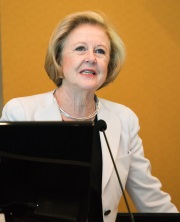 Global Tipping Points and the Role of Research: European Union and Asia-Pacific Migration Summit
Global Tipping Points and the Role of Research: European Union and Asia-Pacific Migration Summit
The Summit, convened by the Hawke EU Centre for Mobilities, Migrations and Cultural Transformations was held at UniSA's City West Campus on 1 - 2 November 2016.
Bringing together leading world figures in migration studies, academics, policy analysts, community activists and political leaders, the Summit examined the role of research and policy-relevant evidence from several European and Asia-Pacific projects on migration and the crisis of asylum.
Read more and watch keynote lectures.
Hawke EU Centre Annual Lecture 2016
Europe, the World and the Challenges of the 21st Century
On Monday 31 October 2016, Baroness Janet Royall of Blaisdon PC delivered the Hawke EU Centre Annual Lecture at UniSA's City West Campus.
Since the European Economic Community (EEC) was established in 1957, the countries of the European Union and the world as a whole have changed exponentially. But the values which underpin the European Union have not changed. Baroness Royall argued that the values of the European Union have assumed greater importance as we seek global solutions to the challenges of the 21st century.
Presented by the Hawke EU Centre for Mobilities, Migrations and Cultural
Transformations and The Bob Hawke Prime Ministerial Centre.
EU Doctoral Pedagogies Colloquium: Models, Challenges, Outcomes
During EASS Research Week in September, the Hawke EU Centre for Mobilities, Migrations and Cultural Transformations in collaboration with the School of Education (EASS) hosted the EU doctoral pedagogies colloquium to assist with the university’s transition to new doctoral formats, as proposed in UniSA’s Crossing the Horizon.
Bringing together leading experts from the EU and academics and students within the university, the two day program presented a series of activities including a series of masterclasses and a public lecture.
Read more and view photo gallery.
Migration as a Global Challenge: The EU's Response
Presented by the Hawke EU Centre on Wednesday 17 August, H.E. Mr Sem Fabrizi (EU Ambassador to Australia and New Zealand) outlined how the EU is doing its share to face this global challenge by implementing an ambitious and unique migration strategy based on an unprecedented mobilisation of internal resources and strong cooperation with international partners in full respect for international law.
Read more and view photo gallery.
 How is Technology Changing Humanities Research?
How is Technology Changing Humanities Research?
A masterclass by on Dr Jennifer Edmond on Tuesday 9 August at City West Campus.
In this masterclass, Dr Jennifer Edmond introduced the basic definitions and approaches of digital humanities, including some of the real opportunities and threats the ‘digital turn’ in scholarship pose.
 Europe After the Rain: Exhibition by John Foxx
Europe After the Rain: Exhibition by John Foxx
This exhibition presented by the Hawke EU Centre in the Kerry Packer Civic Gallery from 13 July - 5 August focused on the complex interplay between identity, memory, architecture, time and place. The images made from photographs and found objects were gathered over a period of around thirty years by John Foxx in his travels across Britain and Europe.
Read more and view photo gallery.
Life in the Sky Workshop
Presented by UniSA's Hawke EU Centre on 24 - 25 May 2016, this Workshop addressed how airports, airspaces and airport cities are increasingly central to the development of the contemporary global order. Participants addressed how airports blend different kinds of mobility through detailed appraisal of Australasian and European perspectives on international air traffic.
Europe Day Celebration and Awards Ceremony
Officially opened by Professor Anthony Elliott, Executive Director of the Hawke EU Centre for Mobilities, Migrations and Cultural Transformations, students and staff came together on Monday 9 May 2016 to celebrate and remember the historical context in which the Union was created, the progress that has been made, the difficulties it has had to overcome, and the original aims of the European project.
Read more and view photo gallery.
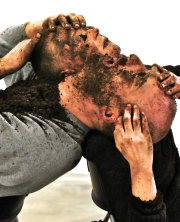 Border Crossings
Border Crossings
An exhibition that brings together curators and visual artists from Ireland and Australia who work across the disciplines of sculpture, installation and performance to respond to cross-cultural issues surrounding the legacy of colonialism & the challenges of reconciliation that are relevant to both countries. All of the participating artists engage with serious issues in discursive, poetic, poignant & whimsical ways.
Read more and view photo gallery
2015
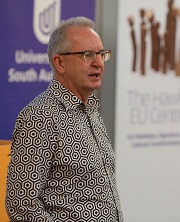 Learning to Live Together in Culturally Diverse Societies Conference
Learning to Live Together in Culturally Diverse Societies Conference
A conference on the general theme of the educational challenges of learning to live together in increasingly culturally diverse societies.
Read more and view photo gallery
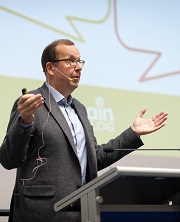
Hawke EU Centre Annual Lecture
After the Fall: Content, Context and Co-Creation After the Decline of Print Media
What happens when customers disrupt an entire industry? Rapidly changing consumption habits are forcing newspaper companies across Europe to question business models, products and practises that kept them successful for decades.
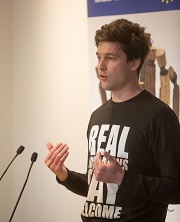
'The Welcome Workshop' Community Event
The Welcome Workshop was held on 16 September and included a community-led discussion about arrival, welcome and place-making to talk about:
- What does it mean to feel welcome?
- At what point does one feel welcome in a new place?
- What contributes to feeling welcome?
'Memory: Migration, Reconciliation and the Emotions' - Australian Memory Research Network Meeting
The second meeting of the Australian Memory Research Network was held from 4th to 5th September 2015, at the University of Melbourne.
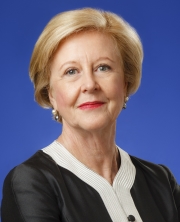 Public Lecture by Professor Gillian Triggs
Public Lecture by Professor Gillian Triggs
Professor Gillian Triggs, President of the
Australian Human Rights Commission, delivered a public lecture on asylum, human rights and international law from an Australian and EU perspective on 28 July 2015.
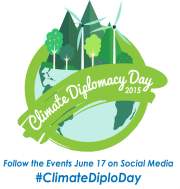 European Climate Diplomacy Day
European Climate Diplomacy Day
Film Premiere of "The Climate Blueprint" documentary and Expert Panel on Climate Change ahead of COP21, was held on Wed 17 June at the Palace Nova.
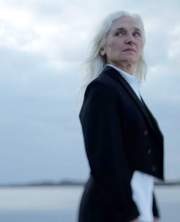 The River of Lives with Olwen Fouéré
The River of Lives with Olwen Fouéré
Olwen Fouéré, one of Ireland’s leading theatre-makers, joined with Professor Ronan McDonald, Director of the Global Irish Studies Centre, UNSW to discuss her acclaimed new adaptation of the voice of the river in James Joyce's Finnegans Wake.
2014
Official Launch of the Hawke EU Centre
Hosted at the Anne & Gordon Samstag Museum of Art, and in combination with Wesfarmers latest exhibition Luminous Worlds, the Hawke EU Centre for Mobilities, Migrations and Cultural Transformations celebrated its commencement with a special launch event.






